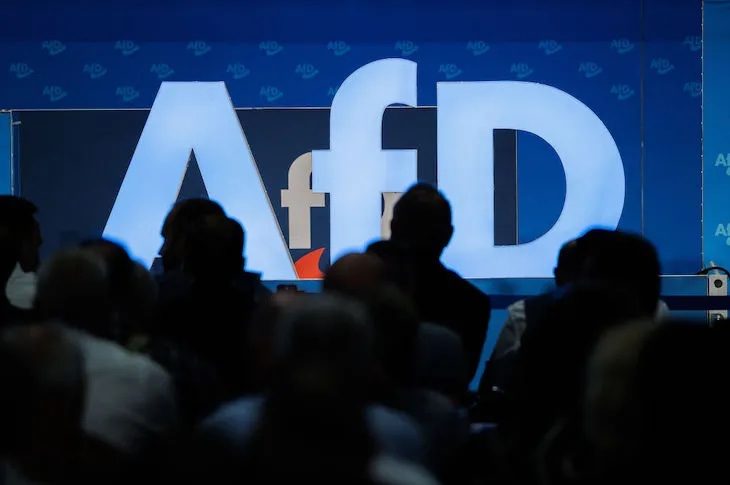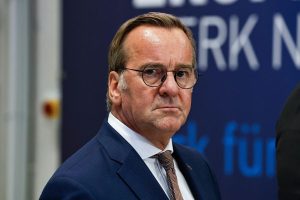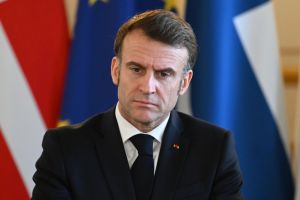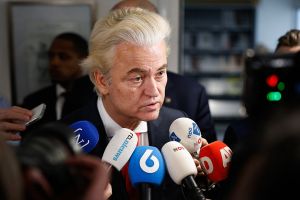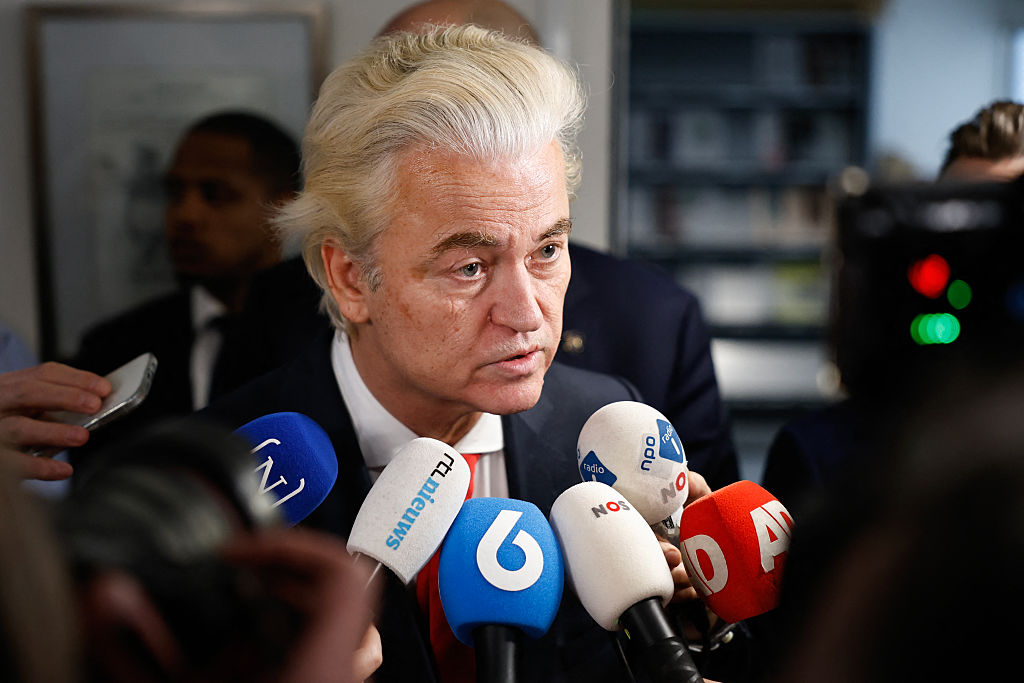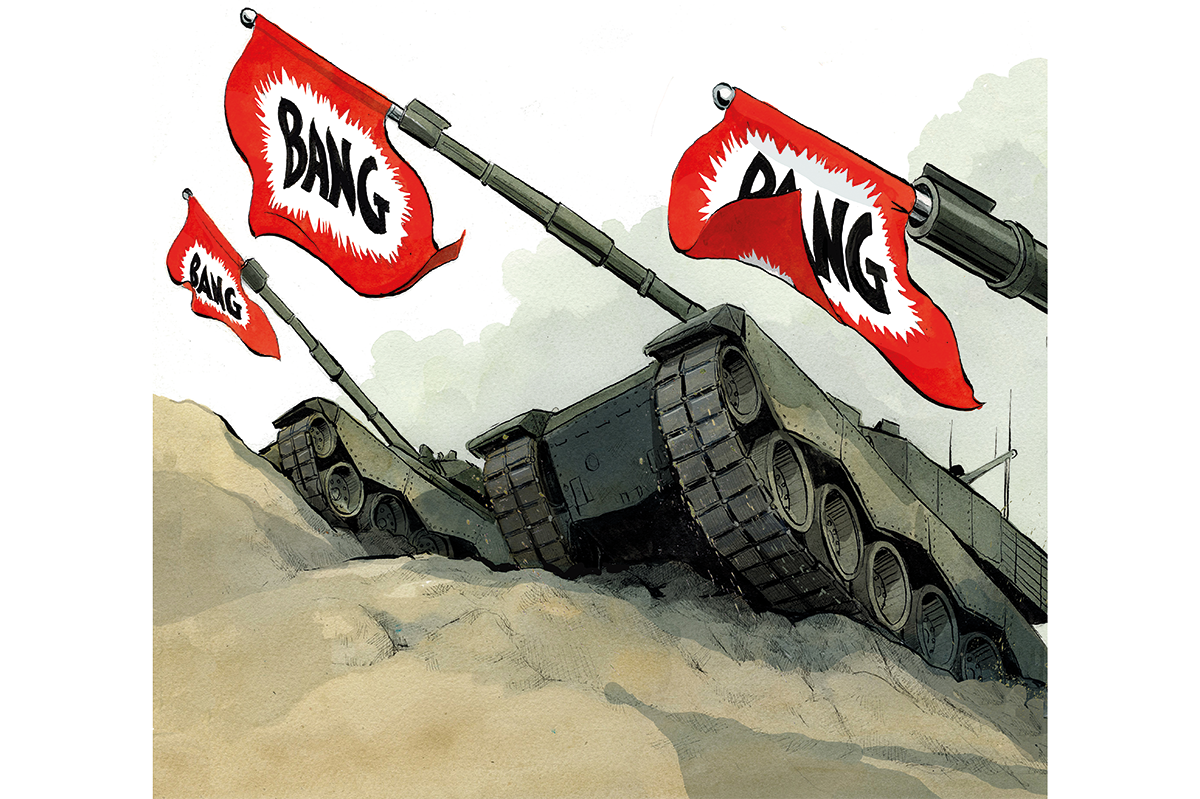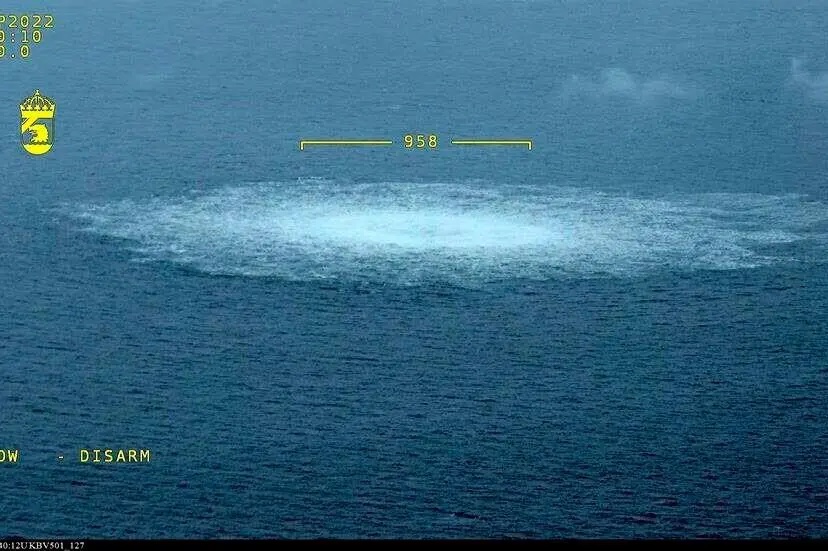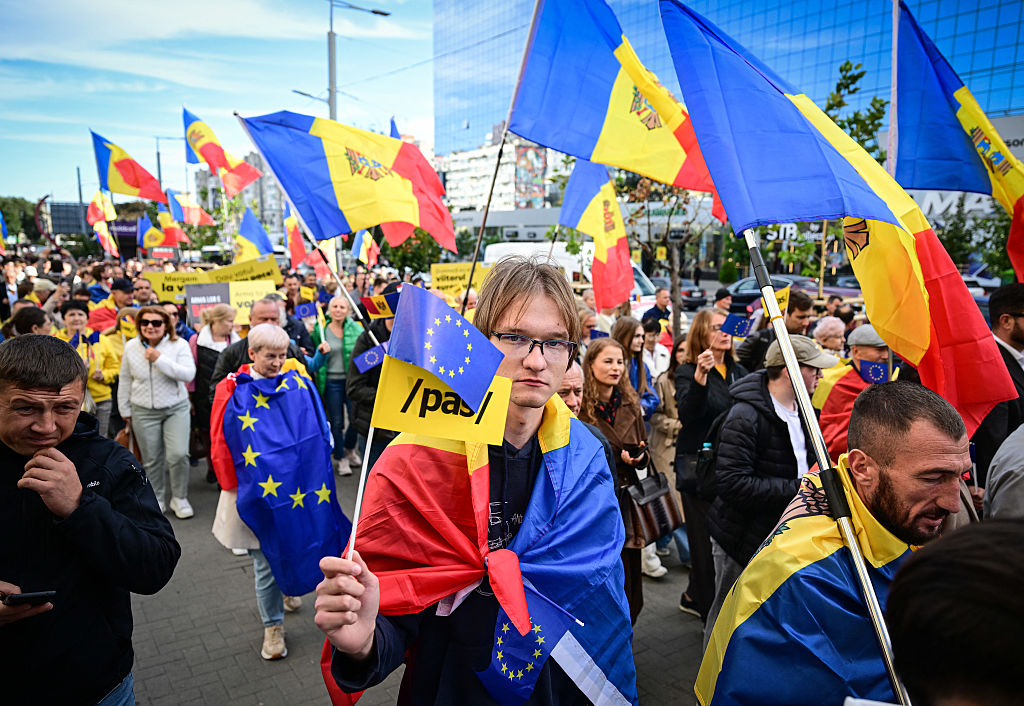Members of Germany’s AfD (Alternative für Deutschland) Party gathered in the eastern city of Magdeburg this weekend. The party’s aim during its conference was to choose candidates for the upcoming elections to the European Parliament and thrash out policies on such thorny topics as immigration, and Germany’s place in Europe, including a possible “Dexit.” But their presence — as ever with the AfD — sparked a storm of protest.
Thousands of people took to the streets of the city to demonstrate against the “Nazis” in their midst, but the ideological position of the party — on exiting the EU for instance — remains unclear: alternating between its moderate official policies and the overheated rhetoric of some of its leaders.
The lead candidate chosen for the Euros, for example, a Dresden lawyer named Maximilian Krah, called for the continent to become a “fortress” against migration, while his deputy, Bjorn Hocke, said “the EU must die so Europe can live.” According to critics, this is an echo of a slogan used by the Nazis during World War Two that soldiers killed at Stalingrad “had to die so that Germany could live.” Another AfD member of the Bundestag is known as “Radio Russia” for his vocal sympathy for Putin over Ukraine.
The conference, attended by 600 or so delegates, was closely watched by Germany’s media — ever on the lookout for signs of neo-Nazism in the right-wing party, which is currently riding high on 20 percent in opinion polls. This level of support places the AfD ahead of both the ruling Social Democrats and the Greens, partners in the national coalition government — and recently led to the the election of the first AfD official to a regional authority. The AfD’s many critics are worried.
Yet despite its success, particularly in the economically depressed east Germany, the AfD’s own worst enemy appears to be itself: the party has been riven by internal ideological splits since it began life in 2013 as a protest outfit against Germany’s adoption of the euro. Its first leader, the economist Bernd Lucke, quit the party denouncing it’s rightward turn after being deposed by a more nationalist successor Frauke Petry. She was soon ousted by an even more nationalist minded faction who control the AfD to this day.
The divided nature of the party is reflected in its present joint leadership, which is shared between Alice Weidel, a sophisticated Chinese-speaking Western businesswoman and former Goldman Sachs banker with a lesbian partner, and Tino Chrupalla, a working-class former house painter from east Germany who rose to run his own building company.
On the question of the EU, the AfD struggles to come up with an answer. Though it began as a euroskeptic party, the AfD today appears to be more undecided on this issue, not least, perhaps, because as a recognized party in the European Parliament it receives funds from Brussels. It is also mindful that German public opinion is strongly pro-EU and that only 13 percent of the public tell pollsters that they want the country to leave. The party’s conference this weekend yielded no new consensus on this issue.
The AfD has effectively been locked out of power in Germany, so perhaps any policy on this issue — if it ever can be decided upon — would remain hypothetical. All establishment parties have agreed on a “firewall” to keep the AfD out by not cooperating on a local level or entering coalitions with them. This firewall was breached last week by Friedrich Merz, chairman of the center-right CDU, who said there could be local agreements with the party so long as it was democratically elected. Such was the furious outcry, however, that Merz was swiftly forced to backpedal and retract his statement.
But whether Germany’s politicians can continue to shut the door on the AfD isn’t clear. Germany is following the current trend across many European countries from Italy and France to Scandinavia for populist parties of the right to be gaining votes on the back of mass immigration. What makes the country unique, however, is the taint of its Nazi past that informs and infects any rational debate about the future.
This article was originally published on The Spectator’s UK website. Subscribe to the World edition here.



